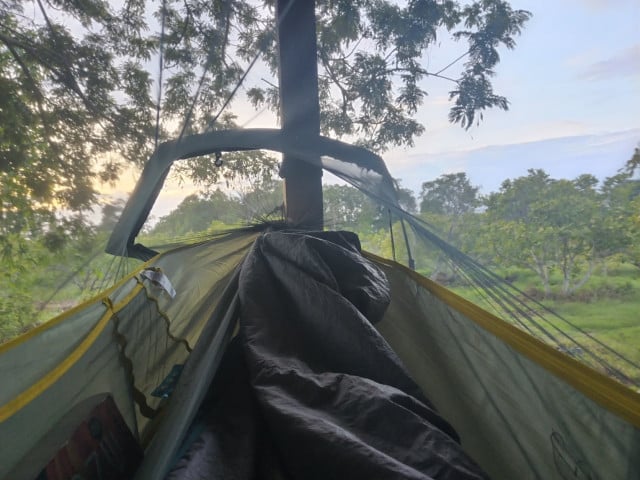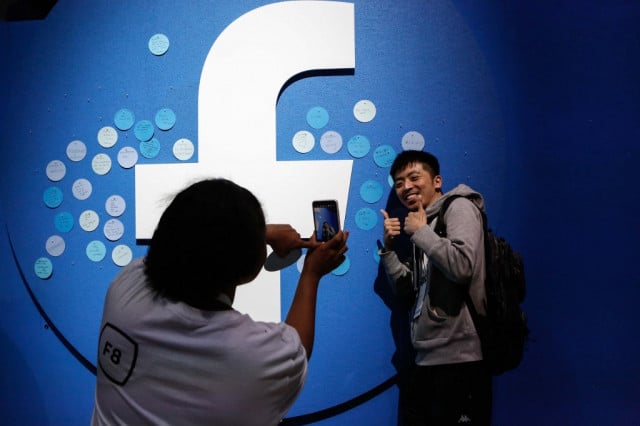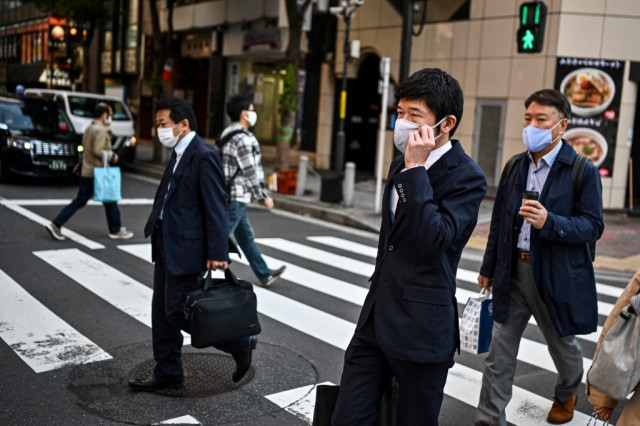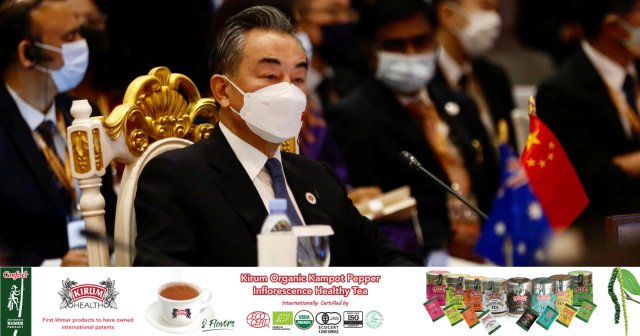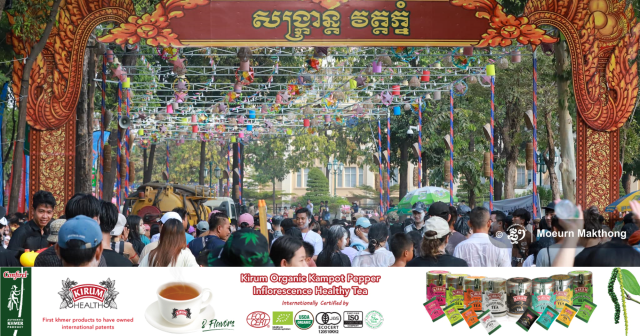Cambodian Government Pushes Ahead with National Internet Gateway
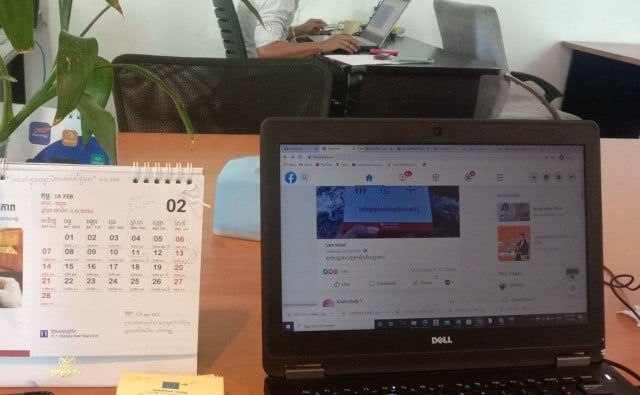
- Gerald Flynn and Phoung Vantha
- February 20, 2021 3:52 AM
Despite concerns from human rights advocates and the business community, the government has announced it will establish a National Internet Gateway, which many liken to China’s “Great Firewall.”
PHNOM PENH--Doing little to assuage the fears that the proposed National Internet Gateway will be another tool used for censorship in Cambodia, the government announced on Feb. 16 that it had approved the sub-decree to establish what many have called a China-style internet firewall.
The sub-decree gives internet service providers just one year to reroute all of Cambodia’s internet traffic through the National Internet Gateway—a move that industry experts warn will drastically impact connectivity and internet speeds nationwide.
In December 2020, the Asia Internet Coalition (AIC)—a digital industry association whose members include Amazon, Airbnb, Apple, Booking.com, Expedia Group, Facebook, Grab, Google, LinkedIn, LINE, Rakuten and Twitter—released a statement warning against the ramifications of the proposed National Internet Gateway.
The AIC said that establishing a single national internet gateway would pose “serious risks to businesses” and digital platforms by granting the government “extraordinary powers to arbitrarily block online content or network connections.”
This, the AIC stressed, would seriously undermine citizens’ rights to internet access and present yet another threat to freedom of expression—an already contentious issue in Cambodia, where Prime Minister Hun Sen has recently conducted a year-long crackdown on dissent.
Cybersecurity risks would also grow with the introduction of the National Internet Gateway, the AIC predicted, adding that deteriorating internet speeds would impact all internet users as well as Cambodian businesses with an online presence.
However, refusing to heed the advice from industry experts and dismissing the outcry from rights advocates, the government has pushed ahead with its pursuit of stronger controls on Cambodia’s internet.
Changes to the original draft, which was written in July 2020, appear to be purely cosmetic, with the approved sub-decree containing just 20 articles, by contrast to the 21 articles that featured in the original draft, but the impact of the law will remain the same.
Speaking on the condition of anonymity, one Cambodia-based digital expert called it a sad but inevitable development.
“This is really just to be able to turn off key, targeted sites if there is ever social unrest or widespread dissatisfaction with government policy,” the expert said, adding that the National Internet Gateway could function as a more targeted instrument to shut down social discourse without affecting digital businesses.
“At least this way, in Cambodia, only offending sites might be shut down. Or maybe they’ll panic and pull the plug on everything—who knows,” the expert noted, comparing the powers granted to the government by the sub-decree to events unfolding in Myanmar where the military has intermittently cut internet access nationwide following the coup of Feb. 1, 2021.
One key issue, the expert said, is that Facebook remains the digital platform of choice for social discourse, business and even dissemination of official government announcements. The new sub-decree could put Facebook in the government’s crosshairs in the event of social unrest, the expert predicted.
In short, the expert warned that the National Internet Gateway will circumvent the design of the internet and, in granting such wide-reaching powers to the government—powers that can be used under vague conditions—Cambodia will lose its appeal to investors.
“It sends a message that the [government] might just pull the plug on an internet site or business, with no recourse [for] the business,” the expert warned, but added that the use of VPNs—a virtual private network that encrypts a user’s internet traffic and disguises online identities—could help mitigate the National Internet Gateway, citing China’s so-called “Great Firewall” as an example where this has worked.
Government Declares Criticism “Politically Motivated”
Seeking to defend a policy that has, so far, proven unpopular—even among pro-government media—the Ministry of Posts and Telecommunications issued a statement on Feb. 19 noting that “there have been reactions from a number of news outlets and non-governmental organizations who suggest that the Royal Government intends to collect data, wiretap consumers conversations, restrict freedom of expression and pursue the Chinese model.”
The statement dismissed the mounting criticism as “unfounded, politically motivated, untrue and contradictory to the objectives stated in the Sub-Decree.”
However, Hun Sen has previously declared publicly that he retains the right to listen in on citizens’ phone calls. Various civic freedoms in Cambodia, including freedom of expression, have consistently been eroded through legislative or extra-judicial means, with critics of the government being harassed, intimidated, jailed and, in extreme cases, assassinated.
Last year alone saw a sharp rise in attacks on activists, journalists, environmentalists as the government launched an assault against dissent under the cover of the COVID-19 pandemic, prompting fears over what the National Internet Gateway will be used for.
“By forcing all internet traffic through the [National Internet Gateway] infrastructure, the government has given itself unchecked power to censor any part of the internet under vaguely phrased terms such as ‘public order, dignity, culture, tradition and societal customs,’” said Naly Pilorge, director of local human rights group LICADHO.
Pilorge observed that previous attempts to block online content has depended on internet service providers cooperating with the government, but that the National Internet Gateway will bring such companies to heel, threatening to revoke the licenses of internet service providers that refuse to cooperate.
“It also gives the government an easy-to-trigger switch that it can use to turn the whole Internet off and on at will—a power obviously open to serious abuse,” Pilorge added. “All of this raises grave concerns about the impact this sub-decree will have on the fundamental right of all Cambodians to freely access information.”
Citing the sub-decree’s requirements that internet traffic metadata be centralized and stored for 12 months by internet service providers, Pilorge warned that the sub-decree could easily be used by the government to surveil the online activities of citizens without warrant and, she said, “potentially giving it ammunition with which to launch spurious criminal proceedings against its opponents.”
Impact on Access to Information
Over the course of 2020, Cambodia witnessed a political purge where citizens associated with the outlawed Cambodia National Rescue Party—widely regarded as the biggest threat to Hun Sen’s grip on power until the Supreme Court banned them from participating in elections in 2017—but last year saw the scope of the crackdown widen.
But it was not just political activists who found themselves the target of government sanctions: Monks, artists, unionists, environmental activists and journalists were also caught up in the government’s attempt to eliminate dissent in Cambodia.
The new sub-decree poses a threat to Cambodia’s already decimated independent media, particularly due to the media’s reliance on digital platforms and internet access to reach their audience, according to Nop Vy—director of the Cambodia Journalist Alliance.
“I have a big concerns on this sub-degree especially on the terms which stated in Articles 6, 12, 13 and 14,” said Vy, referencing sections of the sub-decree that impose vague conditions under which internet service providers must cooperate with the government, including—but not limited to—“the assurance of safety, public order, dignity, culture, tradition and custom of the society and prevention and suppression of crimes.”
“The contents of those articles are very broad and authorize authorities to take actions against social media activists and reporters if they are not satisfied,” Vy said. “Of course, the operation and growth of online media outlets will see negative impacts from this sub-decree.”
Press freedoms have steadily eroded in Cambodia in recent years, but 2020 saw a spat of journalists arrested—one for accurately quoting Hun Sen when he suggested unemployed drivers sell their motorbikes for rice—and the anniversary of the Paris Peace Agreement was marred by acts of police brutality that was directed towards protesters, reporters and observers alike.
Vy warned that the shrinking of civic space—particularly online—will likely lead to increased incidents of harassment of behalf of the state.
Echoing these concerns was Phil Robertson, deputy director of Human Rights Watch’s Asia division, who called on Hun Sen to repeal the sub-decree, saying that it would violate the rights of Cambodians.
“Cambodia’s National Internet Gateway is the missing tool in the government’s toolbox for online repression,” Robertson said. “It’s no coincidence that, after shutting down critical media across the country, the Hun Sen government has now turned its attention to online critics, just in time for the nationally organized commune elections due in 2022.”
He warned that, if effective, the National Internet Gateway, devoid of any independent oversight, could be used to arbitrarily block online content and stifle critical voices on a politically motivated basis.
On this basis, Robertson called on foreign governments, tech companies, e-commerce businesses and other private actors to advocate for the repeal of the sub-decree.
“Concerns Are Wrong”
However, Meas Po, secretary of state at the Ministry of Posts and Telecommunications, said that critics were wrong to be concerned. He said it was the government’s duty and that it would be careless for the government not to exercise control over the internet.
“To manage the internet does not mean to control users’ privacy, it's for the internet providers, companies—users are not companies, so concerns are wrong,” he said, adding that the term data referred to internet traffic.
“It’s not about users’ private data, don’t be confused, it’s the volume of traffic that any company manages,” he added.
Po suggested that the government will not scour through users’ data, voice records or messages, but was unable to say what safeguards were in place to guarantee this would not happen.
He also added that the ministry has discussed the sub-decree with internet providers for more than a year and has sought input from the industry.
“They did not disagree with the government and ministry's policy [sub-decree] to manage internet service and they also gave more input for improving internet service in Cambodia,” Po said.
Cellcard and Smart, two of Cambodia’s leading mobile service providers, declined to comment on the possible impact of the National Internet Gateway.
Similarly, none of the internet service providers contacted were willing to comment, although representatives of EZECOM—an internet provider owned by Royal Group’s Kith Meng—said that it was too early to comment as they were still studying the sub-decree to learn its full implications, suggesting that they had not been consulted in the drafting of the sub-decree.
Government’s Arguments Unconvincing
Unconvinced by the government’s reassurances that the National Internet Gateway won’t infringe upon people’s rights, some 62 NGOs, civil society groups, associations and community organizations issued a statement calling on the government to repeal the sub-decree.
In their statement, they also cited Articles 6, 12, 13 and 14, saying that the sub-decree were ill-defined and offered excuses for the government to target human rights defenders, activists and critics.
“Aside from these concerns, the lack of clear definitions in these articles also empowers the authorities to easily take action to restrict access to information online, or to block websites or social media networks that authorities label as dissenting or critical, even if those websites and social media networks provide independent news or information to the public,” the statement read, calling such an act a violation of citizens’ rights to information.
“We suggest that the government repeals this sub-decree immediately to ensure respect for fundamental freedoms, safe and quality internet access for all Cambodians, and benefits for the national economy, in accordance with the Constitution,” the statement read.






